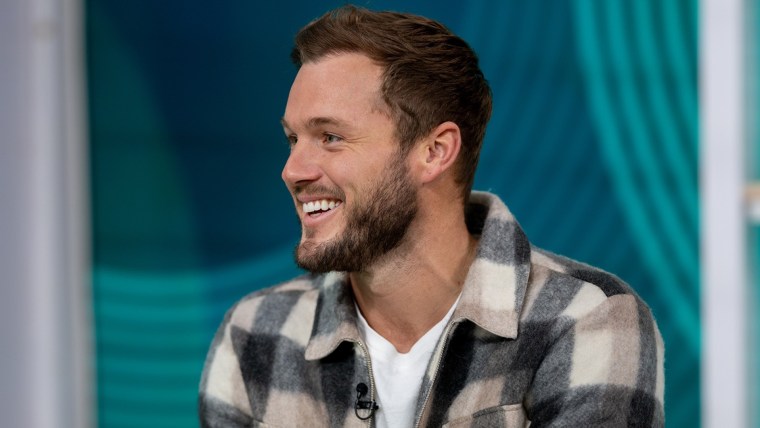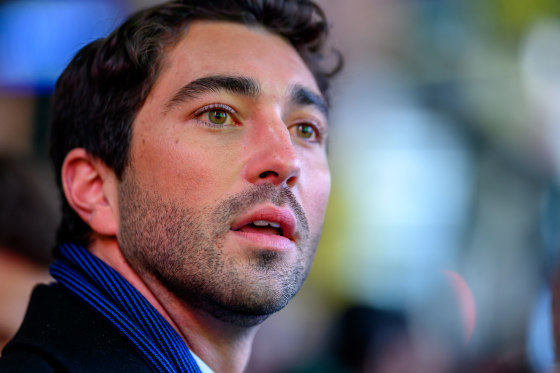In episode four of this season of “The Bachelor,” contestant Lexi Young has to have a difficult conversation on her one-on-one date with the titular bachelor, Joey Graziadei.
After a day filled with lighthearted banter and wandering around Malta — the perfect place to fall in love! — it’s time for Young to “open up” and “be vulnerable” over an untouched dinner. She tells Graziadei that she was previously diagnosed with stage-5 endometriosis, a chronic reproductive condition in which tissue similar to the uterine lining grows outside of the uterus.
After nearly 30 seasons of ABC’s long-running dating show, it’s hard to surprise Bachelor Nation.
“The doctor sits me down and says, ‘You might not be able to have your own kids,’” the 30-year-old tells Graziadei, holding back tears. “I do feel I was called to be a mother. I want a family of my own so badly.” She also shares that she’s only ever opened up to one person about her diagnosis — an ex-boyfriend who decided to end their relationship as a result, because she might not be able to have “his kids.”
Usually, I could script what happens next without even watching the episode. The Bachelor would look at the woman he’s on a date with — or just past her — and say, in as earnest a tone as possible, landing somewhere in the uncanny valley of empathetic human behavior: “That sounds hard. You’re amazing.” He might even throw in a “I see that’s why you’re the woman you are” for good measure.
But Graziadei takes a different approach. He seems to really process what Young is saying, as he gently wipes away her tears with his thumb. “I appreciate that you trust me and feel open enough to share something that personal and intimate with me,” he tells her. “I’m also very sorry that you had to deal with that being a reason for your last relationship ending. … That’s a lot to hold. But I don’t want you to think in any way that’s something that I hear and it makes me want to run away.” He also acknowledges that there are “a lot of other ways” for couples to create a family, and assures Young that her chronic illness doesn’t signal that anything is wrong with her, nor should it be something that makes people run away. Young is moved to tears by his response.
Throughout the season, Graziadei handled other difficult conversations — and settings that might have caused previous Bachelors to flounder — with similar sensitivity. He deftly navigated discussions about familial estrangement and religious alienation with Kelsey Toussant. He responded with genuine curiosity when Daisy Kent told him that she has a cochlear implant. He told Kelsey Anderson that he sees the qualities she’s describing about her late mother in her. He listened and followed through when Rachel Nance told him how to show respect in Filipino culture ahead of her hometown date.
After nearly 30 seasons of ABC’s long-running dating show, it’s hard to surprise Bachelor Nation. But this season featured perhaps the most shocking thing of all: a man in the lead role with the emotional intelligence and care to treat every woman he dates as a full human being, worthy of individual attention, honesty and thought. And while it’s bad for my personal brand to stan a man, one must give credit where credit is due.
“The Bachelor” handed us an outlet for our collective rage, and for a little while, it felt good. But that righteous anger also ended up being draining.
In recent years, it’s been likely that a Bachelor will crash and burn by the final two episodes of his season. Clayton Echard told three women he was in love with them and then made a group announcement that he had slept with two of them. Juan Pablo’s behavior was such that his second runner-up called their overnight date a “nightmare,” and his runner-up told him that she would never want her children to have a father like him. Colton Underwood jumped a fence after his front-runner decided to leave the show. Peter Weber and Arie Luyendyk Jr. each got engaged to fan favorites, and then quickly realized they had chosen wrong and chased after their respective runner-ups. Zach Shallcross’ runner-up felt like she had a “scarlet letter” pinned to her chest after he publicly discussed their intimate moments. Even beloved Golden Bachelor Gerry Turner ended up telling one woman he was excited to start a future with her and then turned around and promptly proposed to another.
Not surprisingly, the franchise has embraced this narrative heel turn, especially when their leads turn out to be milquetoast, uncharismatic duds in other ways. The Bachelor as the ultimate villain is a well-worn trope at this point. At this point, many of us start a season of the show assuming that the man at its center — who we are supposed to be rooting for to find love — will disappoint us in some major way.

This shift of the male lead from heartthrob to Generic-Crappy-Man-stand-in was a chance for a large segment of the audience to enact an element of pseudo-feminist catharsis. Of course a straight man would turn out to be insincere or thoughtless or callous, we thought. “The Bachelor” handed us an outlet for our collective rage, and for a little while, it felt good. But that righteous anger also ended up being draining. Turns out that watching women be treated poorly and then men be publicly flogged for their bad behavior only results in a vaguely icky, depressing feeling afterward. What good is rage if it isn’t directed toward a politically potent project, and instead just bounces around aimlessly?
But Graziadei seems to have broken the mold (the curse?). His reaction to Young’s emotional disclosure about her endometriosis diagnosis was the rule rather than the exception of this season.
A few weeks after that big conversation about her health and fertility challenges, Young makes the difficult choice to leave the show on her own terms. She ultimately feels that she and Graziadei aren’t on the same page about the expedited reproductive timeline she needs to be on. But their relationship ends with shared respect, not bitterness or enmity. And even months later, what seems to have stayed with Young is that respect: “Thank you to Joey for showing me that a safe, non-judgmental, and kind love exists and is possible, and for setting the bar so high for my next relationship,” she wrote on Instagram in February.
It’s been a truly welcome change for an exhausted audience that yearns to feel emotionally full rather than scooped out after watching their escapist reality television. If Joey Joe has given us any gift this season, it’s that.

